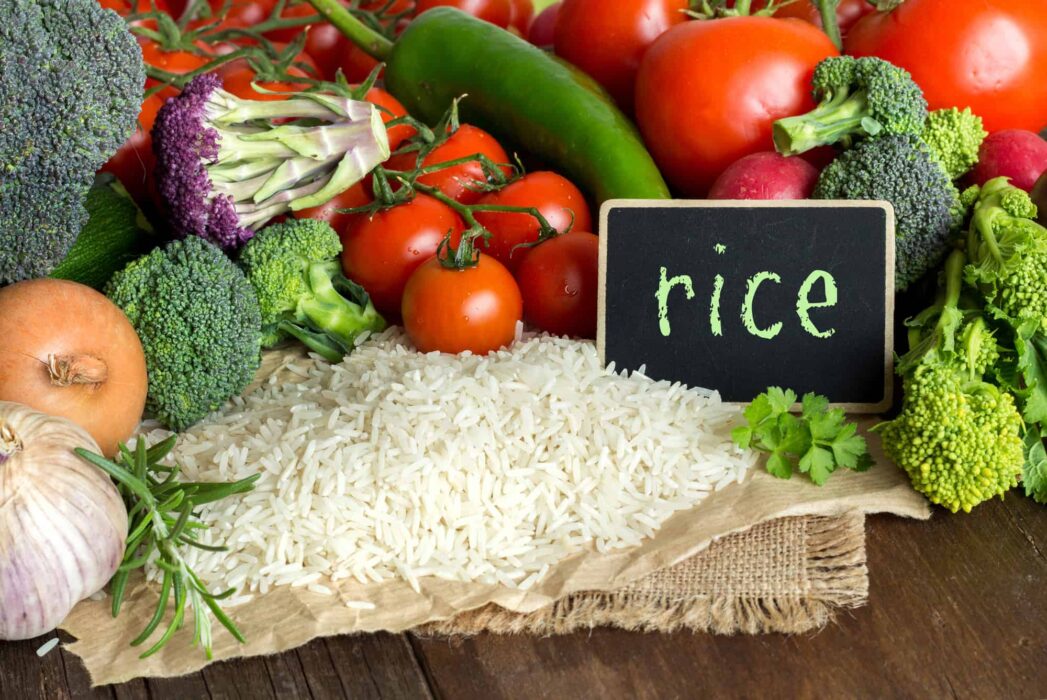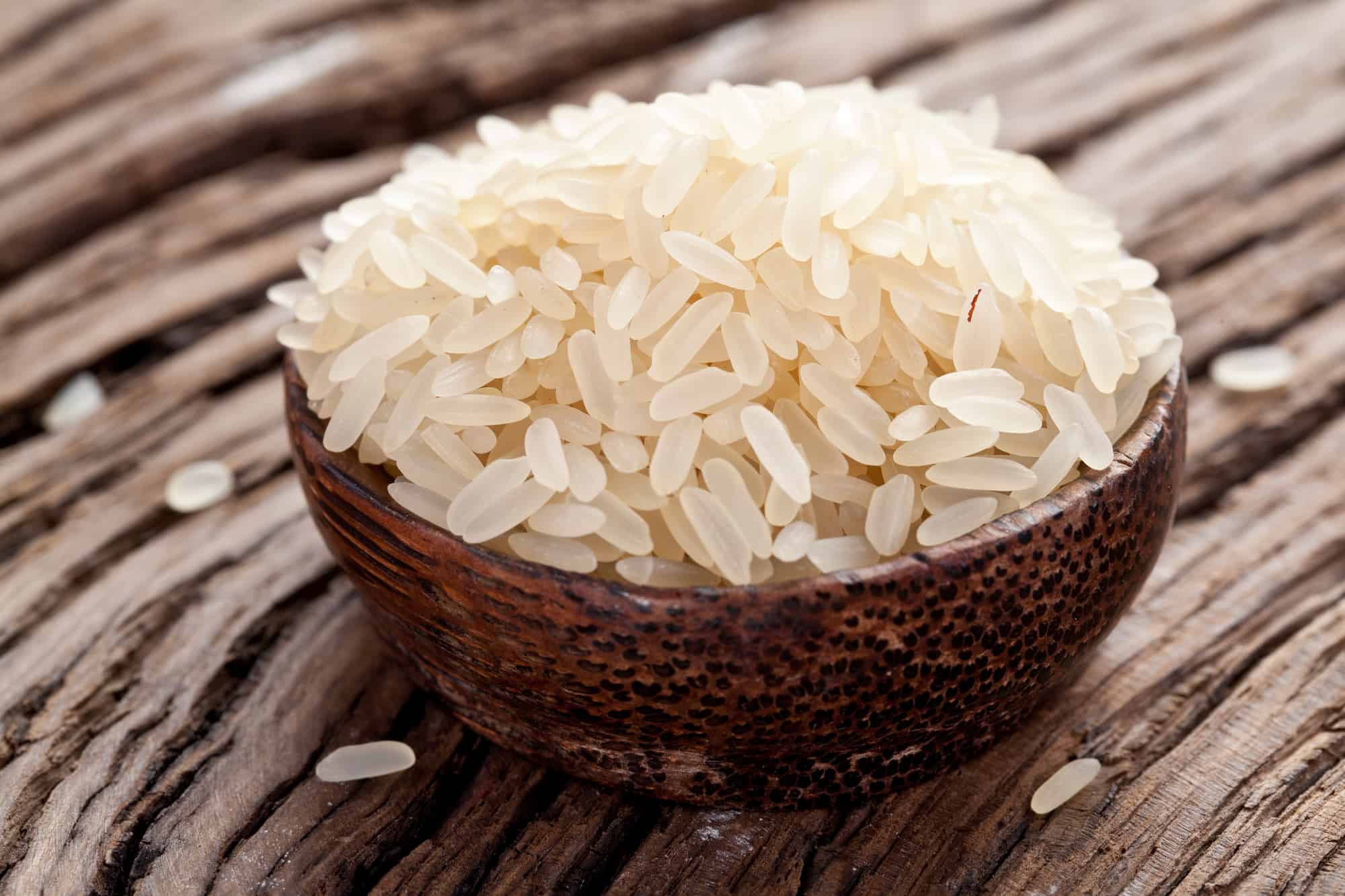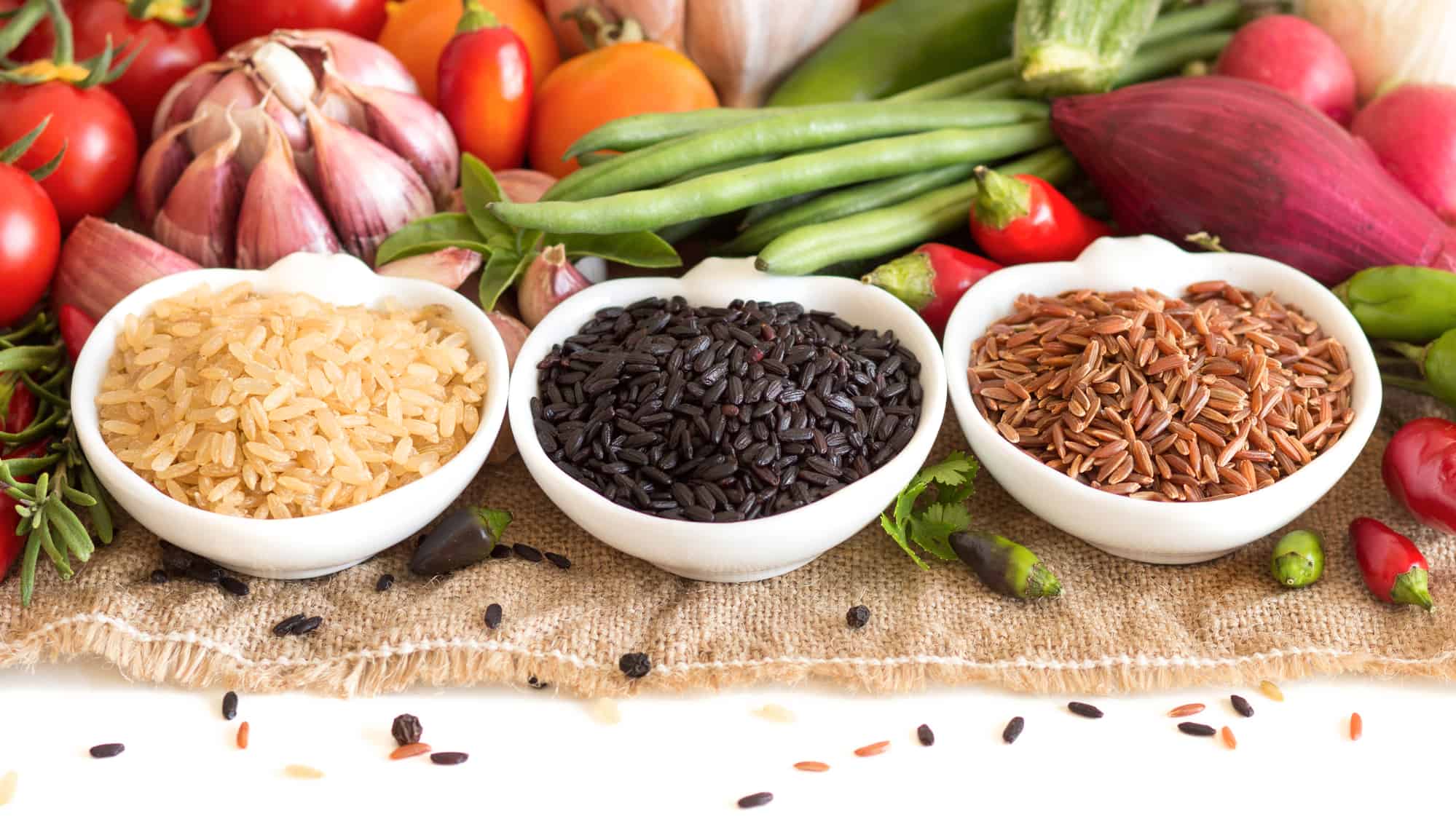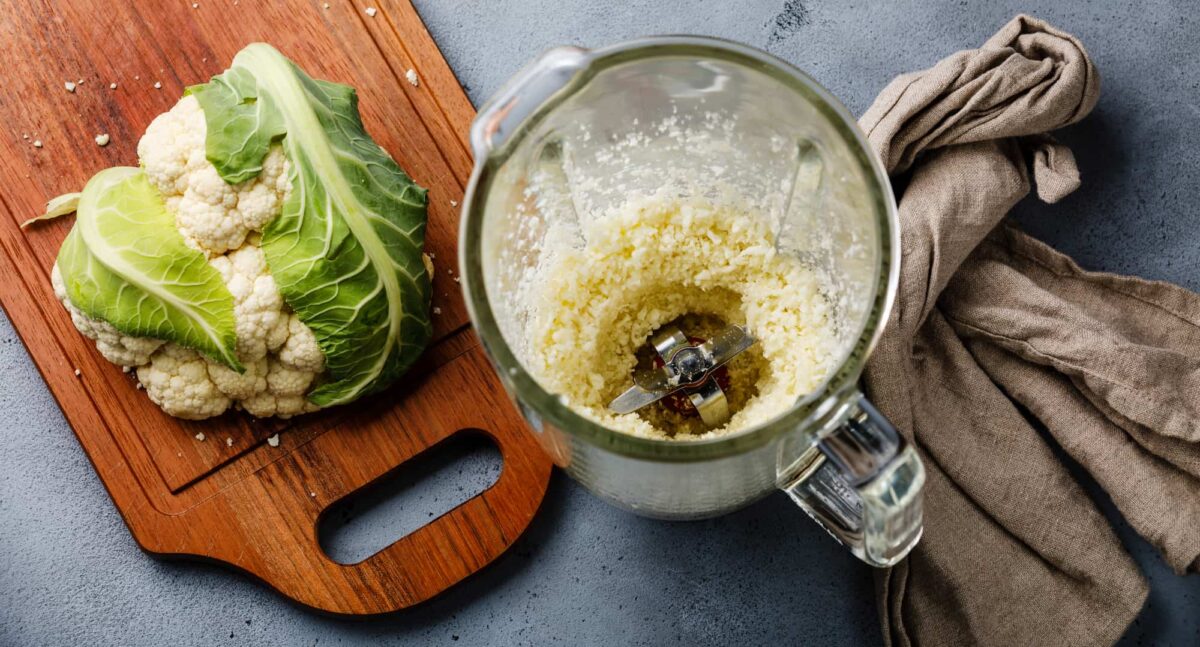Rice is one of the most common foods in the world and a staple ingredient in many dishes of different cuisines. It is also a component of many health and weight loss diets. What about a low-carb, high-fat diet? Is rice keto? Can you eat it without worrying about your ketosis?
The answer will be unequivocal – no. Rice is not keto, and it contains a lot of carbohydrates. Moreover, most of these carbohydrates belong to the starchy group. However, you can occasionally afford a small serving of brown rice if you are active in sports or follow a mild, low-carb diet. If you are still aiming for strict ketosis, you should eliminate rice and consider tasty low-carb alternatives.

In this article, I will tell you how many carbs are in rice and whether you can eat it on a keto diet. I will also walk you through the health benefits of rice and show you how to choose a keto rice alternative. Stay tuned for all the details!
Is Rice Keto?
How many carbs are in rice? Rice contains 79.3 g of carbohydrates per 100 g of product, which is approximately 92% of the total energy per serving, or 317 kcal. The total calorie content of rice is 360 kcal.
Rice composition:
- Fat – 0.58 g
- Proteins – 6.61 g
- Carbohydrates – 79.34 g.
As you can see, rice contains too many carbohydrates, so it is not suitable for a ketogenic diet. So we have figured out that rice is not keto. And here are the main five reasons to avoid it on the ketogenic diet:
- has too many carbs, and most of them are starchy;
- provokes insulin spikes;
- raises your blood sugar;
- has too many calories;
- promotes constipation.
Suppose you are starting a ketogenic diet and trying to enter ketosis. In that case, you need to avoid rice, as high carbohydrates in it can lead to higher insulin levels and disrupt your progress. If you have too many carbs, your body starts using them for energy (rather than fat as it does in ketosis).
Carbs in Quinoa: Is Quinoa Keto-friendly?
However, when you are fully adapted to ketosis or not following a low-carb diet for weight loss or building muscles, you can occasionally eat small amounts of brown rice. Some people (athletes, bodybuilders) who follow the ketogenic diet choose the cyclical diet as it can help them achieve their athletic goals. If you find that you need more energy, you can eat brown rice on carbohydrate loading days.

Rice Benefits for Health
Rice contains B vitamins (B1, B2, B3, B5, B7, B9, and B12), vitamin E, and A. There are many trace elements without which the normal performance of the body is impossible, namely: phosphorus, potassium, iron, zinc, calcium, selenium, and iodine. It also contains important amino acids and is free from gluten, which can cause allergic reactions. Let’s take a closer look at the beneficial effect of vitamins that rice contains.
Vitamin A
This vitamin is very important for vision, including night vision. But it also participates in many other processes that take place in the body. For example, it promotes growth and tissue renewal (skin, stomach lining) and regulates the immune system. It also aids in wound healing and protects the skin from the aggressive external effects of the sun.
In addition to the properties of vitamin A itself, beta-carotene can act as an antioxidant. This property of beta-carotene helps reduce the risk of developing cancers of the bladder, mouth, larynx, respiratory tract, breast, esophagus, and colon.
Thiamin (B1)
Thiamin has another name – “vitamin of vivacity and spirit.” It has a positive effect on:
- brain function;
- the functioning of the nervous system;
- the process of memorizing information;
- organs of the digestive tract;
- transfer of genetic information through cells.
Riboflavin (B2)
This vitamin can be synthesized in the large intestine, but the majority of the substance comes from food. Useful properties of vitamin B2:
- helps the formation of red blood cells;
- iron is better absorbed with it;
- optimizes vision function;
- helps the liver to function normally.
Niacin (B3)
Vitamin B3 helps to establish enzymatic processes, and participates in carbohydrate and cholesterol metabolism. It promotes the successful absorption of all nutrients and helps in the production of many hormones, primarily insulin. Niacin also helps lower blood pressure.
Panthenol (B5)
It is essential for wound healing. Vitamin B5 has other important functions for health:
- regulates metabolism;
- promotes energy production;
- reduces stress levels in the body;
- promotes good memorization, and improves attentiveness.

Biotin (B7)
This vitamin is most important for the regulation of blood sugar levels. However, it performs other functions as well:
- reduces muscle pain;
- promotes the synthesis of fatty acids;
- optimizes the condition of hair, nails, and skin;
- is an important participant in the transportation of carbon dioxide.
Folic Acid (B9)
It is an especially important substance for women during pregnancy and at the planning stage. Folate is directly involved in the formation of the fetal neural tube, which means that its deficiency can cause the most severe pathologies in the child’s development. Folate also participates in the transmission of hereditary information and reduces the risk of developing oncology.
Cyanocobalamin (B12)
Vitamin B 12 contributes to the formation of nucleic acids. This vitamin also:
- helps to assimilate amino acids;
- carries out the synthesis of protective sheaths of nerve fibers;
- lowers cholesterol levels;
- stimulates blood clotting.
Vitamin E
This vitamin is a powerful antioxidant. It slows down the aging process of cells and improves their nutrition. Also, vitamin E stimulates immunity, participates in protection against viral and bacterial infections, and improves tissue regeneration. It also has other beneficial properties:
- stimulates the formation of capillaries;
- improves vascular tone and permeability;
- improves blood circulation;
- protects the skin from ultraviolet rays;
- participates in the synthesis of hormones;
- reduces the formation of wounds, and scars on the skin;
- reduces body fatigue;
- helps to lower blood sugar;
- helps the normal functioning of the muscles.
In the presence of invaluable vitamins and elements, rice is still not suitable for a keto diet. But if you are used to it and you really want to add it to the menu, here are some good keto rice substitutes.
Keto Rice Substitutes
Cauliflower Rice
One of the most popular low-carb substitutes on the list is cauliflower rice, and for a good reason. Cauliflower can help reduce the risk of certain cancers, improve digestion, and help balance hormones. It is a powerful source of vitamins C and K, and it also helps fight inflammation, which is the root cause of most chronic diseases.
Cauliflower rice is a powerful inflammation fighter due to its abundant antioxidants and anti-inflammatory properties that help minimize free radicals and oxidative stress.
How to Lose Your Belly Fat on Keto?
It is very easy to prepare cauliflower rice. Boil the cauliflower until slightly tender and grind it in a blender into small pieces similar to rice. By the way, cauliflower is also a perfect ingredient for keto pizza.

Radish Rice
Radish is a great substitute for keto potatoes. However, you can easily peel it, put it in a food processor, and grind it into the rice. One whole glass of this rice contains only 4 g of net carbs, 2 g of protein, and 0 g of fat.
Radish is abundant in minerals such as manganese, phosphorus, magnesium, calcium, iron, and zinc. It is a good source of vitamins C, E, and K. It also acts as an antioxidant, and improves the immune system, metabolism, and digestion in general.
Broccoli Rice
It is an excellent source of vitamins A, C, E, and B6. Broccoli is rich in manganese, potassium, and magnesium. Making keto rice from it is as easy as making cauliflower substitute. Boil and grind the broccoli in a blender to a rice-like consistency.
This rice substitute will give you a lot of fiber without carbohydrates and will be a great addition to any meat or fish.
Conclusion
As you can see, while rice has many health benefits, it contains too many carbohydrates to be included in your keto diet. You can eat small amounts of rice on a moderate, low-carb diet, but if your goal is weight loss, you should refuse it completely.
However, if you are hungry for rice and are looking for the perfect keto side dish, try the rice substitutes I’ve suggested. They are a great addition to any protein meal without disrupting your ketosis.